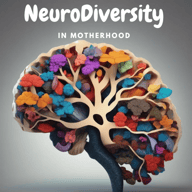Motherhood: Journey of self-discovery, investing in our Subjective well-being

We all experience positive and negative emotions, challenges, and profound self-discovery in our motherhood journey. Motherhood becomes even more complex and enriching when raising neurodiverse children. As mothers, we should invest daily in Subjective Well-Being.
What Is Subjective Well-Being?
Subjective well-being refers to the personal evaluation of happiness, including positive emotions, the absence of negative emotions, and overall satisfaction. This concept is essential to understanding how mothers perceive their daily experiences, relationships, and personal growth.
Motherhood and Subjective Well-Being
Being a mother is one of the most transformative experiences in life. For many, it brings a sense of purpose, profound love, and moments of doubt, exhaustion, and despair. Therefore, subjective well-being in motherhood is not a straight line but a dynamic journey influenced by internal and external factors.
Raising Neurodiverse Children: Challenges and Opportunities
When a child presents neurodiverse conditions, such as autism, ADHD, dyslexia, among others, the mother's role is expanded and uniquely challenging. These mothers often face additional hurdles, like accessing specialized services, adjusting daily routines, and confronting social stigmas.
On the other hand, raising neurodiverse children can also bring a deep sense of achievement and pride. Many mothers report that this experience helps develop greater empathy, resilience, and a broader perspective on diversity and inclusion.
How to Foster Subjective Well-Being in Motherhood of Neurodiverse Children?
Prioritise emotional health: Seeking psychological support or joining groups of mothers with similar experiences can help manage complex emotions.
Celebrate small victories: Recognising progress, no matter how small,
Establish compatible routines: Structured routines provide safety for both the child and the mother, promoting greater tranquillity.
Set boundaries: Recognising the importance of self-care and expanding your support network is crucial for maintaining well-being.
Emphasise acceptance: Accepting your child's uniqueness and cultivating a positive attitude toward challenges contributes to greater personal satisfaction.
Conclusion
Raising neurodiverse children demands strength, courage, and love, but it also offers a unique opportunity for personal growth and a more profound sense of subjective well-being. Recognising that happiness in motherhood is not a fixed goal but an ongoing journey of discovery is essential for each mother to find her balance and celebrate the beauty in her children's diversity and experiences.
If you are a mother or are considering becoming one, remember that caring for yourself is also essential to caring for your child.
May this journey be marked by love, resilience, and, above all, self-discovery.
